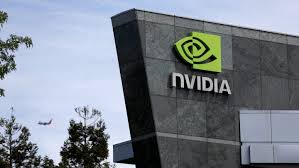ANALYSIS: Behind Nvidia's High-Stakes Push Into Sovereign AI

ANALYSIS: Behind Nvidia's High-Stakes Push Into Sovereign AI
SANTA CLARA, Calif. — A recent flurry of high-volume stock sales by Nvidia executives has ignited a sharp debate among investors and analysts over the semiconductor giant’s future valuation, even as the company aggressively pivots towards what it frames as its next major growth engine: sovereign AI.
The divergence in narratives—pitting concerns over leadership’s long-term conviction against a vision of new, multi-billion dollar revenue streams—has placed Nvidia at a critical juncture, forcing the market to weigh established success against future potential.
The Context of Executive Stock Sales
At the heart of recent market anxiety are regulatory filings showing that top Nvidia insiders, including CEO Jensen Huang, have sold over $1 billion in company stock this year. Prominent financial news organizations, including the Financial Times and CNBC, have highlighted these transactions, reporting that the sheer scale has fueled questions among some investors about whether the stock's meteoric rise is sustainable.
However, corporate governance experts and market analysts offer a more nuanced perspective. Many of these sales are conducted under SEC Rule 10b5-1, which allows insiders to set up pre-arranged trading plans for selling stocks at a predetermined time. “For executives whose compensation is heavily weighted in equity, periodic, planned sales are a standard financial practice for portfolio diversification and managing personal wealth,” said a senior analyst at a Silicon Valley wealth management firm who works with tech executives.
Proponents of this view note that despite the sales, Nvidia’s leadership continues to hold substantial positions in the company, valued in the tens of billions of dollars. They argue that the sales represent a fractional component of their total holdings. Furthermore, they point to the company’s stock performance—which has seen unprecedented gains—as a natural catalyst for such planned selling. A report from equity analysis firm VerityData noted that while the volume is high, it is not necessarily inconsistent with insider behavior at other companies that have experienced similar explosive growth.
The Sovereign AI Frontier
While the debate over stock sales has captured headlines, Nvidia’s leadership has been directing its strategic communications toward what it calls the dawn of the sovereign AI era. This strategy posits that nations around the world will increasingly seek to develop their own sovereign artificial intelligence capabilities—including large language models trained on their own data and in their own languages—to ensure economic competitiveness and national security.
In recent public statements and investor calls, CEO Jensen Huang has presented this as a new, trillion-dollar market opportunity. “The data a country has is a national treasure,” Huang stated during a recent technology conference. “They have to take that data, refine it, and produce their own national intelligence.”
This narrative directly counters concerns that Nvidia’s growth could plateau as its primary customers—a small group of U.S.-based Big Tech firms—build out their initial AI infrastructure. According to a market report from tech research firm Omdia, government and state-affiliated AI spending is projected to become one of the fastest-growing segments of the market. Nvidia is positioning itself as the primary partner for these national initiatives, offering not just chips but entire data center platforms and expertise. This strategic pivot reframes Nvidia not just as a component supplier but as a foundational partner in national digital infrastructure projects, from Japan to Canada and across Europe.
Navigating a More Competitive Landscape
Concurrent to this push, a persistent narrative questioning Nvidia's long-term dominance has continued in financial commentary. Outlets such as The Motley Fool and the Times of India have increasingly published analysis on “the next Nvidia,” speculating that technology giants like Meta Platforms and OpenAI could diminish Nvidia’s market share by developing their own in-house AI accelerators.
These reports argue that the immense cost of purchasing Nvidia’s high-end GPUs provides a powerful incentive for hyperscalers to invest in custom silicon tailored to their specific needs. The move, they suggest, could signal a future where Nvidia’s role is gradually eroded.
In response, industry analysts stress Nvidia's significant and deeply entrenched competitive advantages. The company’s CUDA software platform, a proprietary programming model for its GPUs, has been the industry standard for over a decade. This creates a powerful ecosystem lock-in, as developers and researchers have invested years building applications and models on the CUDA architecture. Migrating away from it presents significant technical challenges and costs.
Furthermore, Nvidia continues to innovate at a pace that competitors struggle to match. A recent wave of positive leaks, widely covered in enthusiast tech media, has detailed the upcoming RTX 50 SUPER series of consumer and prosumer GPUs. These reports highlight significant upgrades in video memory (VRAM)—a feature that directly addresses prior criticism from its customer base. This demonstrates a market responsiveness that reinforces customer loyalty while signaling to investors that the company's technological roadmap remains several steps ahead of any potential rival, whether a hyperscaler or a traditional chipmaker.

